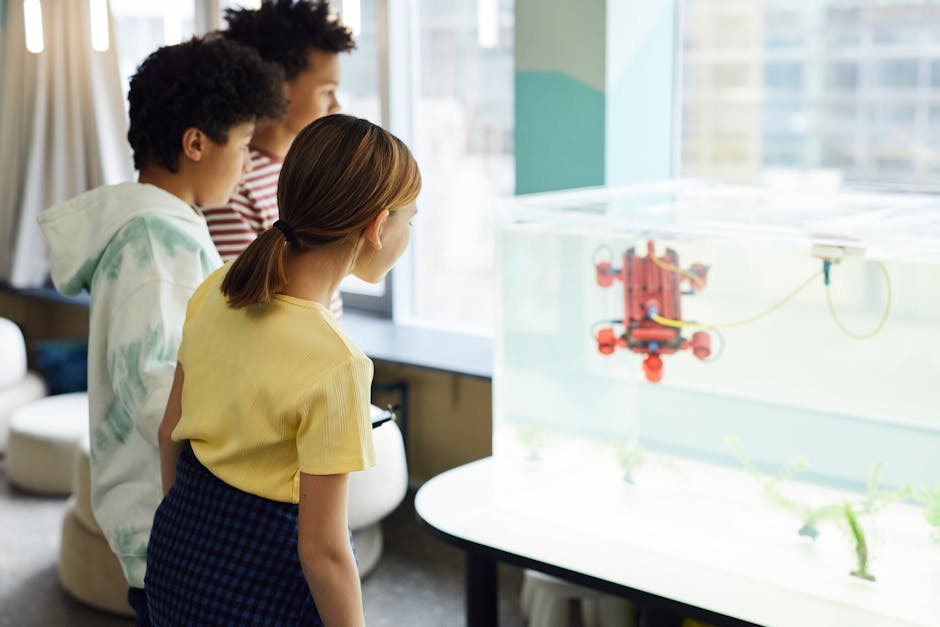Exploring the Foundation of Education: A Comprehensive Guide
Welcome to the world of foundational education, where the building blocks of knowledge and skills are laid down to pave the way for a lifetime of learning. In this article, we will delve deep into the realm of foundational education, exploring its significance, evolution, challenges, and future prospects. From the historical roots of education to the latest trends in teaching methodologies, we will unravel the complexities of this crucial stage in a student’s academic journey.
The Origins of Foundational Education
Foundational education, also known as early childhood education or primary education, has its roots in the ancient civilizations of Mesopotamia, Egypt, and Greece. In these early societies, children were taught basic literacy, numeracy, and social skills by their parents or tutors. The advent of formal schooling in the Middle Ages saw the rise of monastic schools, where young boys were educated in religious texts and basic subjects like Latin and arithmetic.

The Industrial Revolution of the 18th and 19th centuries brought about a shift in the education system, as the need for a literate and skilled workforce grew. Public education systems were established, providing free and compulsory schooling for children of all social classes. The foundations of modern educational practices, such as standardized testing, curriculum development, and teacher training, were laid during this period.
The Importance of Foundational Education
Foundational education plays a crucial role in shaping a child’s cognitive, emotional, and social development. It lays the groundwork for future academic success by building essential skills such as reading, writing, and critical thinking. Research has shown that children who receive quality foundational education are more likely to excel in school, graduate from high school, and pursue higher education or vocational training.
Furthermore, foundational education fosters creativity, curiosity, and a love for learning in young minds. It provides a safe and nurturing environment where children can explore their interests, express themselves, and develop social skills through interaction with peers and teachers. By instilling a strong educational foundation early on, we can empower children to become lifelong learners and productive members of society.
Challenges in Foundational Education
Despite its importance, foundational education faces several challenges that hinder its effectiveness and impact. One of the key issues is the lack of access to quality education, especially in developing countries and marginalized communities. Limited resources, inadequate infrastructure, and a shortage of trained teachers contribute to disparities in educational outcomes among children.
Additionally, the one-size-fits-all approach to education can be detrimental to students who learn at different paces or have unique learning styles. Traditional methods of instruction, such as rote memorization and lecture-based teaching, may not cater to the diverse needs of today’s learners. Educators and policymakers are now exploring innovative strategies, such as personalized learning, project-based learning, and technology integration, to address these challenges and enhance the quality of foundational education.
The Future of Foundational Education
As we look towards the future, the landscape of foundational education is evolving rapidly to meet the demands of the 21st century. With advancements in technology, the rise of digital learning platforms, and the growing emphasis on skills-based education, educators are embracing new approaches to teaching and learning. Blended learning models, flipped classrooms, and online resources are reshaping the way students engage with content and collaborate with their peers.

Moreover, the concept of lifelong learning is gaining traction, as individuals are expected to adapt to a rapidly changing job market and technological landscape. Foundational education is no longer confined to the early years of schooling but extends throughout a person’s life, enabling continuous growth and skill development. By equipping students with critical thinking, problem-solving, and digital literacy skills, we can prepare them for the challenges and opportunities of the future.
Expert Opinions
According to Dr. Maria Montessori, a renowned educator and innovator in early childhood education, “The greatest sign of success for a teacher… is to be able to say, ‘The children are now working as if I did not exist.'” This quote highlights the importance of empowering students to take ownership of their learning and become independent thinkers.
Dr. Howard Gardner, a psychologist and professor at Harvard University, has revolutionized the field of education with his theory of multiple intelligences. He believes that every child possesses a unique set of intellectual abilities, and it is the educator’s role to identify and nurture these talents through differentiated instruction and personalized learning experiences.
Common Misconceptions
One common misconception about foundational education is that it is solely focused on academic achievement and test scores. In reality, foundational education encompasses a broad spectrum of skills and competencies, including social-emotional learning, creativity, and critical thinking. A holistic approach to education is essential to ensure that students develop into well-rounded individuals who can thrive in a complex and interconnected world.
Conclusion
To wrap things up, foundational education is the cornerstone of a child’s academic journey, laying the foundation for lifelong learning and success. By providing a solid educational framework early on, we can empower students to reach their full potential and contribute meaningfully to society. As we navigate the challenges and opportunities of the 21st century, it is essential to prioritize quality, equity, and innovation in foundational education to ensure a bright future for generations to come.




